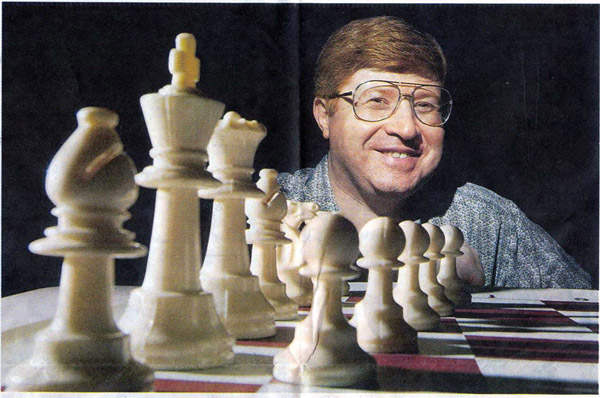Aleksandr Kitsis learned how to play chess at the age of five. He played on several different teams during his school years, and he even went on to coach teams at the school and university level. Throughout his youth, his goals and aspirations changed, yet, even while working on other career paths, Aleksandr was teaching chess part-time.
Aleksandr received an undergraduate degree in Mechanical Engineering from Kishinev Agricultural University (Moldova – former USSR) and a Master Degree in Business from JCU after immigrating to the U.S. He worked with three manufacturing companies helping to optimize their business operations. His last position was with Milbar Company in Chagrin Falls as an Engineering Manager.
In April of 2002, Aleksandr took his love of chess to the next level and opened his own business instructing others how to play this complex game.
“Throughout my life, chess has always been in the back of my mind,” said Aleksandr who is rated among the top 1% of chess players in the United States. He has also written several books and articles on the game.
- What was the biggest challenge you encountered starting your business?
- “Peoples’ mentality. In the minds of many Americans, chess is a game for geeks, when in all actuality it is a complex game with multi-dimensional benefits.
"Today … the game of kings has unmistakably surged in popularity. Writer Martin Amis, comedian Stephen Fry, magician David Blaine, model Carmen Kass, pugilists Lennox Lewis and Vladimir Klitschko, actors Will Smith, Woody Harrelson, Susan Sarandon and Greta Scacchi, even Madonna and Sting, are all ‘woodpushers.’ ‘It’s now cool to play chess,’” wrote Paul Hoffman in the August-03 Smithsonian, p. 73-79.
By learning to play chess, children learn how to focus, increase concentration and extend their attention span, ultimately the results affect students’ IQ and their academic performance. For senior adults, playing chess helps to keep their minds active and increases their memory span. For the business community, in general, playing chess helps the employee to think at a higher level, allowing employers to increase job complexity. Chess also has the opportunity, for society to reduce the crime rate. Chess teaches individuals how to think through their problems before acting on them.”
- What is your favorite part of your job?
- “Seeing the qualitative changes in students and seeing how their approach and attitudes towards problems change through the course of the program.”
- What advice do you give people when they are just learning to play chess?
- “Be patient and have fun.”
- What has been the most exciting part of any job you have ever had?
- “One of the biggest and most exciting challenges is trying to find a balance between maximizing the opportunities and minimizing the obstructions. It is very exhilarating to see everything and everyone brought together.”
- Anything else you’d like to add?
- “The beauty of chess as a teaching tool is that it stimulates students’ minds and helps them to build array of mental skills while enjoying themselves. Just like polishing a diamond increases its value tremendously, by polishing the mind, chess unleashes more of the mind's hidden potential. As a result, students become more critical thinkers, better problem solvers, and more independent decision makers.”
For more information about Vivacity, Inc., contact:
Web: www.vivacityinc.com/chess
Phone: 440-461-3634
Email:
(The e-newsletter of the JCU Entrepreneurs Association
April 2004)
|
